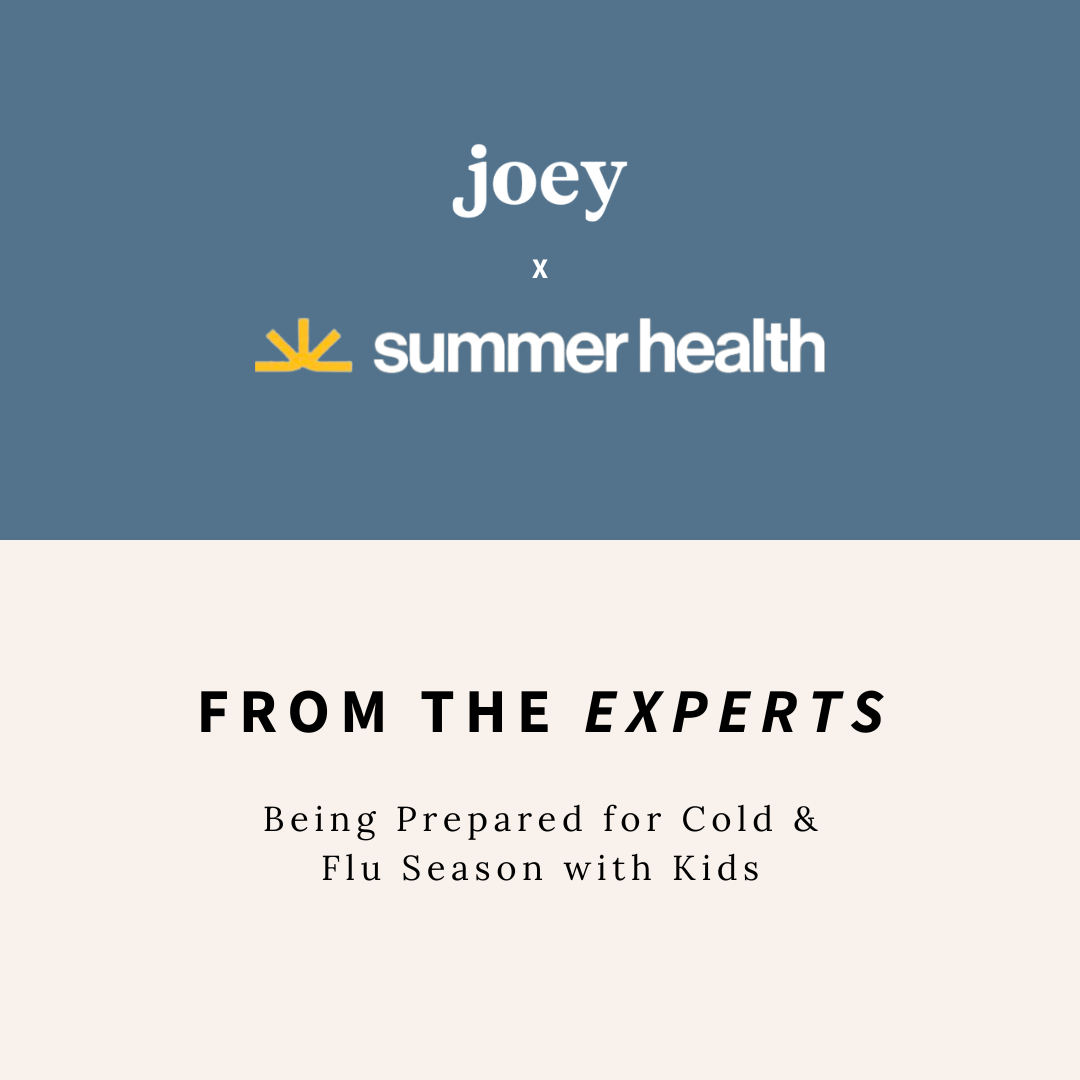Raising children takes a village and Summer Health brings experts into that support system. They are the first line of defense and an ongoing resource for families, offering around the clock access to experts for reliable advice over text and immediate relief. Available 24/7, 365 days a year, Summer Health provides quality and accessible care for parents who are looking for quick answers to any question relating to their child without having to go through the tedious process of securing an appointment or commuting all via a simple text.
Dr. Ali Alhassani, Head of Clinical at Summer Health, gave us advice on how to protect yourself from that cold everyone seems to have 🤧 Tune in for monthly advice from their experts.
What are the best tips to Prepare for Cold and Flu Season with Kids?
Education: Teach children about the importance of good hygiene practices, like washing hands properly.
Flu Vaccination: Ensure that all family members, especially children over 6 months, receive their flu shots.
Healthy Habits: Encourage a healthy diet, adequate sleep, and regular physical activity to boost the immune system.
How should parents stock their medicine cabinet? What are the most common over the counter medications that you recommend every parent or caregiver have on hand during cold and flu season?
Include essential OTC medications like pain relievers like:
- Acetaminophen (Tylenol) and Ibuprofen (Motrin)
- Cough suppressants, Throat lozenges, and Decongestants.
Make sure to have a thermometer to monitor for fever and first-aid supplies like Band-aids, antiseptic wipes, and gauze.
Do you have a dosing chart for Tylenol, Motrin, etc? We always have parents that ask this because they don’t have it easily accessible when you need it most.
What are good sick day survival kit items that parents and caregivers should always have at home (for example, humidifier, thermometer, etc)?
Humidifier: To ease breathing in dry indoor environments.
Digital Thermometer: For accurate temperature readings.
Hydration Aids: Oral rehydration solutions, broths, or electrolyte-rich drinks.
Comfort Items: Extra blankets, favorite toys or books for comfort.
Frequent hand washing or hand sanitizer?
Frequent Hand Washing is the most effective way to prevent the spread of germs but hand sanitizer is great when soap and water are not available; ensure it contains at least 60% alcohol.
Is it too late to get flu shot? When is the best time for kids and parents to be getting their flu shots?
The idea time for a flu shot is September and October, but it's not too late! It's still beneficial to get a flu shot even later in the season, as flu peaks can vary.
Every year the flu hospitalizes thousands of kids, especially young ones.
- Who it’s for: All children 6 months and older
- When to get it: If this is your child’s first season getting the flu vaccine, they will need to get two doses (spaced at least 4 weeks apart.) Based on the timing of the expected flu season, September and October are the best times to get it
What’s the best way to stay healthy during the holidays - with gatherings with friends and family?
Be mindful of close contact in large gatherings, especially if flu or colds are circulating and continue practicing good hygiene and handwashing.
RSV vaccines?
For the first time ever, we will have widely available tools to help prevent severe illness from RSV, the #1 cause of hospitalization in infants.
Beyfortus (an antibody that protects against serious RSV infection)
- Who it’s for: Infants 8 months and under, and for high-risk infants and toddlers aged 8-19 months
- Does it work? Reduced the risk of hospitalization by 80% in a large clinical trial.
Abrysvo (a vaccine for expectant mothers to protect babies 6 months and under from RSV)
- Who it’s for: Pregnant women in the third trimester of their pregnancy
- When to get it: The CDC has not yet officially set guidelines so stay tuned for more information
- Does it work? Reduced the risk from severe disease in infants 0-3 months by 80% and 70% efficacy in 3-6 months in a large clinical trial
As a disclaimer, the CDC says it is safe to get your flu shot and Covid vaccines at the same time, but guidance hasn’t been shared yet about if it’s recommended to get your RSV vaccine alongside the other two shots.
Remember, these guidelines are general and it's always important to consult with your pediatrician for personalized advice and instructions, especially regarding medication dosages and vaccinations.
About Dr. Ali Alhassani
Ali Alhassani, MD is the Head of Clinical at Summer Health. Prior to this he was Director of Clinical Strategy at Humana, where he helped develop clinical programs to improve patient care and experience. He served as a management consultant at Boston Consulting Group, where he served clients across the healthcare industry. Ali is also currently a staff physician at Boston Children's Hospital and Instructor at Harvard Medical School, where he completed his pediatric training and medical degree, respectively. He also holds a master's in Health Policy from the London School of Economics.

